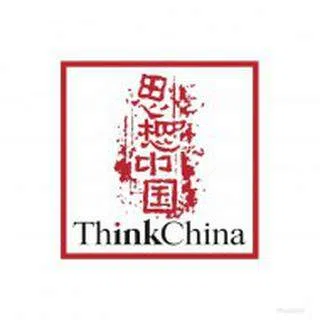China-US competition: Letting the enemy self-destruct
Based on the experience of the Cold War, the US can see merit in letting the enemy undo itself in its strategy against China. For the Soviet Union, it was the ills of Stalinist socialism and the failure of the command economy. For China, will its inherent contradictions lead to its own unravelling?

When US President Joe Biden took office in January this year, the US came up with three strategies for dealing with China. The first one - competing with China by building a grand alliance - came from Biden's presidential campaign. The second one was mainly offered by diplomatic circles and think tanks by way of the The Longer Telegram published by the Atlantic Council on 28 January. It spoke about two separations - between the Chinese Communist Party (CCP) government and the Chinese people, and between CCP government and the party elite.
On 29 March, The New York Times published an opinion piece titled "How Will We Win the Second Cold War?", describing the third approach of gaining an advantage and winning by letting the competitor become a partner in its own undoing. The article defines this undoing as "the inner weakness that the regime can't get rid of because it's part of its DNA", that is, inherent faults in its ideology and system will lead to unavoidable consequences in thinking, policies and results.
...the more the Soviet Union tried to strengthen its centrally planned economy, the less it was able to compete with Western economy and the more vulnerable and insecure it became, leading to its eventual dissolution.
Soviet Union had a great hand in its own demise
The article takes reference from the Cold War between the US and the Soviet Union, asserting that the Soviet Union's biggest undoing was its command economy. Being monopolistic, large, bloated, and lacking competitive vitality and innovation mechanisms, it was hard to discover and nurture talents. But Stalinist socialism demanded such a backward economic system to be maintained and consolidated - at least the rulers believed that it had to be maintained or the party and country would be destroyed.
And because such a rigid system was unable to compete with the West's free market economy, the outcome was a vicious circle: the more the Soviet Union tried to strengthen its centrally planned economy, the less it was able to compete with Western economy and the more vulnerable and insecure it became, leading to its eventual dissolution.

Later historians often say that the key factor that led to the Soviet Union's downfall was that they did not undergo reform and opening at that critical juncture like China did, and neither did they have an outstanding politician like Deng Xiaoping. But assumptions cannot be made about history, and reality has proven that reform and opening up did not really solve substantial issues as well.
Self-reform
From the past to the present, there have been all kinds of reforms and new policies. But the ultimate test of a reform's success or failure is when it becomes necessary to reform oneself.
The contrast between the modernisations of China and Japan at the end of the 19th century to the beginning of the 20th century is instructive. The Qing dynasty never changed or even touched the rules set by their ancestors. Whenever their attempts at reform reached a critical point, they beat a retreat. For example, the Hundred Days of Reform (戊戌变法) ultimately failed because the proposals impinged on imperial rights. And in the end, when the Qing dynasty wanted to create a constitutional monarchy, the matter was undecided for a long time. This hesitation ultimately accelerated the dynasty's collapse.

On the other hand, Japan firmly went ahead with the Meiji Restoration. Even when reform arrived right at his doorstep during Emperor Meiji's reign, he willingly relinquished some of his power to establish a parliamentary election system and a cabinet responsibility system in Japan. In the end, Japan achieved rapid growth across various sectors and quickly became powerful. Notwithstanding, the modernisation of Japanese politics ultimately relied on a push from external forces. This goes to show that the actual realisation of the so-called self-reform is no mean feat.
The risk of political reform is that it could lead to a regime's self-negation. Thirty years ago, after all of Mikhail Gorbachev's reforms, he lost himself, the Communist Party of the Soviet Union (CPSU) and the Soviet Union. However, self-subversions like these can also lead to the revival and rebirth of a nation and its people.
How the US prevented its own undoing during the Cold War
Returning to the topic of China-US competition, there is much to learn from the Cold War between the US and the Soviet Union. While the US was the ultimate winner of this Cold War, it was not guaranteed that the US would win and neither were they calm and composed in the early stages of the war. In fact, both sides were highly tense and on high alert initially, carefully guarding against each other. Not only was the Soviet Union under immense pressure from its internal politics, blockades and purges, the US also went overboard with investigating and punishing "communist subversion" resulting in the Red Scare and "McCarthyism" of the far right.
...the US should advance itself while maintaining its confrontational strength and vigilance against external competition, so as to gain an advantage and ultimately win the Second Cold War by letting China become "a partner in its own undoing".

This brings us back to the danger of a country being its own downfall, that is, having the original aim of strengthening and protecting itself against the enemy, but ending up being destroyed by it. After McCarthyism reigned for a period of time in the early 1950s, American mainstream society and political system became aware that if this situation persisted, the US would soon end up with the same fate as the Soviet Union.
The most powerful weapon that the US had against the Soviet Union was precisely democracy, freedom, rule of law, civil society and related values. Thus, the US resolutely ended McCarthyism. And it was because of such timely awareness and correction that the US did not fall into the vicious circle of being a victim of its own undoing like the Soviet Union.
Now, The New York Times article is again suggesting that the US should advance itself while maintaining its confrontational strength and vigilance against external competition, so as to gain an advantage and ultimately win the Second Cold War by letting China become "a partner in its own undoing". Indeed, the showdown between great powers is not confined to the battlefield!


![[Big read] When the Arctic opens, what happens to Singapore?](https://cassette.sphdigital.com.sg/image/thinkchina/da65edebca34645c711c55e83e9877109b3c53847ebb1305573974651df1d13a)


![[Video] George Yeo: America’s deep pain — and why China won’t colonise](https://cassette.sphdigital.com.sg/image/thinkchina/15083e45d96c12390bdea6af2daf19fd9fcd875aa44a0f92796f34e3dad561cc)